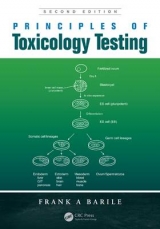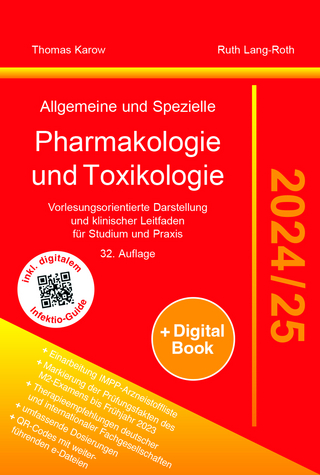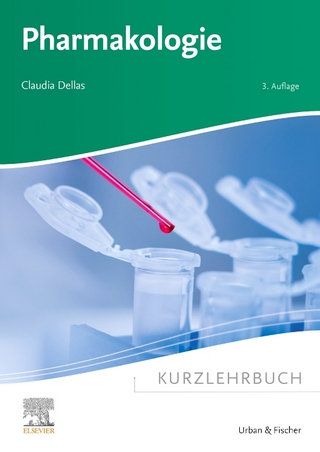
Principles of Toxicology Testing
Crc Press Inc (Verlag)
978-0-8493-9025-8 (ISBN)
- Titel erscheint in neuer Auflage
- Artikel merken
Principles of Toxicology Testing juxtaposes the principles of animal toxicology testing with in vitro alternative methods to highlight the importance of each for interpretation of the significance and relevance of the other. Divided into three parts, the book emphasizes the universal applications of the field as a science rather than the particular steps of laboratory technique. The first part introduces the fundamentals of the toxicology, toxicokinetics, and human risk assessment. The second part details toxicology testing in animals and describes acute, subchronic, and chronic studies as well as testing for mutagenicity and carcinogenicity. Focusing on study design and determination of classical indicators, it covers short and long term methodologies including dermal, ocular, and reproductive. Presenting the advantages and disadvantages of each method, part three introduces in vitro alternative testing such as cell cultures, cellular methods for acute systemic toxicity, as well as target organ and local toxicity. The author also considers contemporary issues such as chemical exposure, high throughput screening, and the efforts of US and E.U. regulatory agencies to standardize and validate in vitro techniques.
By bringing traditional and alternative testing methods into a single volume, Principles of Toxicology Testing challenges you to interpret the significance of toxicology testing results and construct a logical approach toward the ultimate purpose of testing.
St. John's University, Queens, New York, USA
Basic Concepts in Toxicology Testing
Introduction to Principles of Toxicology
Types of Toxicology
Common Terms and Nomenclature
Applications of Toxicology
Classification of Toxic Agents
Sources of Toxins
Effects of Chemicals
Toxicological Effects
Biochemical Properties
Exposure
Chemical Interactions
Dose-Response Relationship
Toxicokinetics
Absorption
Distribution
Biotransformation
Elimination
Risk Assessment and Regulatory Toxicology
Risk Assessment
Regulatory Toxicology
Descriptive Animal Toxicology Tests
Correlation with Human Exposure
Animal Welfare and U.S. Animal Welfare Act
Chemicals
Species Differentiation
Methodologies
Toxicology Testing In Vivo
Acute Toxicology Testing
Objectives of Acute Toxicology Tests
LD50 and Acute Toxicology Tests
Organization of Studies
Range-Finding Tests
Classical LD50
Other Considerations with LD50 Determinations
Applications of LD50 Studies
Subchronic and Chronic Toxicology Testing
Types or Subchronic and Chronic Toxicity Tests
Experimental Design
Acute Dermal and Ocular Toxicology Testing
Acute Dermal Toxicity Tests
Acute Ocular Toxicity Tests
Toxicology Testing for Fertility and Reproduction
History and Development of Teratogenicity Testing
Brief Description of Maternal-Fetal Physiology
Mechanisms of Developmental Toxicity
Teratogenicity
Embryotoxicity
Male Reproductive Toxicology
Female Reproductive Toxicology
Carcinogenicity and Mutagenicity Testing in Vivo
Introduction and Definitions
Multistage Carcinogenesis
Carcinogenic and Genotoxic Agents
Carcinogenicity Testing in Vivo
Bioassay Protocols for in Vivo Carcinogenicity Testing
Mutagenicity Testing in Vivo
Toxicology Testing In Vitro
Introduction to In Vitro Toxicology Testing
History of in Vitro Methods
In Vitro Systems
History of Cell Culture
Cell Culture Methodology
Cell Culture Laboratory
Cultured Cells
Culture Requirements
Procedures
Cell Culture Methods for Acute Toxicology Testing
Acute Target Organ Toxicity Testing
Acute Local Toxicology Testing
Toxicokinetic Studies in Vitro
Metabolic Studies in Cell Culture
Mutagenicity Testing in Vitro
Bacterial Cell Systems
Mammalian Cell Systems
Development of Short-Term Test Strategies
Reproductive and Teratogenicity Studies In Vitro
Alternative Methods for Embryotoxicity Testing
Validation of Alternative Methods for Reproductive and Teratogenicity Studies
High Throughput Screening and Microarray Analysis
High Throughput Screening in Preclinical Drug Testing
Microarray Systems
Experimental Design and Statistics
Establishing Experimental Plan
Experimental Design
Hypothesis Testing and Statistical Applications
Standardization and Validation of Alternative Methods
Introduction
Validation Process
Current Validation Programs
Applications of Alternative Models for Toxicology Testing
Introduction
Significance of Alternative Models for Animal Toxicology Testing
Extrapolation to Human Toxicity
Use of Alternative Methods for Human and Animal Toxicology
Index
| Erscheint lt. Verlag | 23.7.2007 |
|---|---|
| Zusatzinfo | 8 equations; 14 Halftones, black and white; 62 Tables, black and white; 44 Illustrations, black and white |
| Sprache | englisch |
| Maße | 156 x 235 mm |
| Gewicht | 590 g |
| Themenwelt | Studium ► 2. Studienabschnitt (Klinik) ► Pharmakologie / Toxikologie |
| Naturwissenschaften ► Biologie | |
| ISBN-10 | 0-8493-9025-7 / 0849390257 |
| ISBN-13 | 978-0-8493-9025-8 / 9780849390258 |
| Zustand | Neuware |
| Haben Sie eine Frage zum Produkt? |
aus dem Bereich



